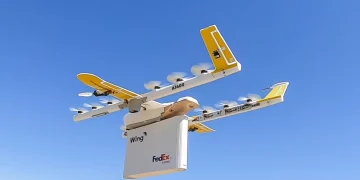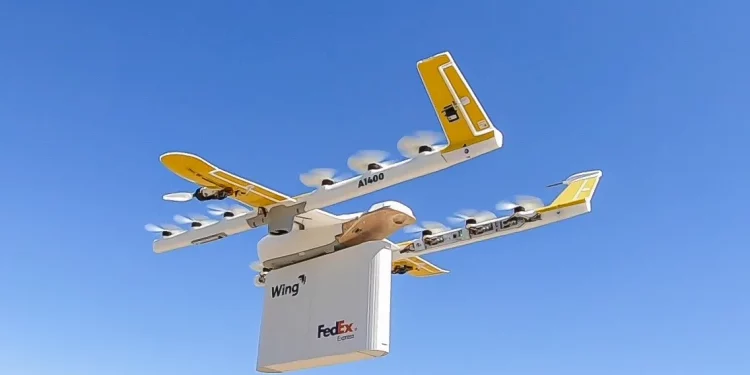FedEx, a global leader in logistics and cargo transportation, is making waves with its recent foray into drone delivery [Reuters]. The company has launched a pilot program in rural North Carolina, utilizing autonomous drones to deliver essential medical supplies to remote communities.
This innovative project highlights the growing potential of drone technology to revolutionize logistics, particularly in underserved areas. Traditional delivery methods can be expensive and time-consuming in remote locations, but drones offer a faster and more cost-effective solution.
“This pilot program allows us to explore the numerous benefits of drone delivery,” said a FedEx spokesperson. “By focusing on medical supplies in rural areas, we can ensure critical medications reach patients quickly and efficiently, potentially improving healthcare outcomes.”
The North Carolina program utilizes custom-designed drones capable of carrying up to 5 pounds of cargo over a range of several miles. These drones are equipped with advanced navigation systems and safety protocols to ensure safe and secure deliveries.
While the program is still in its early stages, experts believe it could pave the way for wider adoption of drone delivery in the future. Drones can potentially improve access to essential goods and services in remote areas, enhance delivery speed and efficiency in urban environments, and even reduce traffic congestion in crowded cities.
However, significant hurdles remain. Regulatory frameworks governing drone operations are still evolving in many countries. Additionally, public concerns regarding privacy and safety need to be addressed before large-scale drone delivery becomes a reality.
Despite the challenges, FedEx’s pilot program represents a bold step towards the future of logistics. As drone technology continues to develop and regulations adapt, we can expect to see a growing role for autonomous aerial vehicles in delivering goods across the globe.























